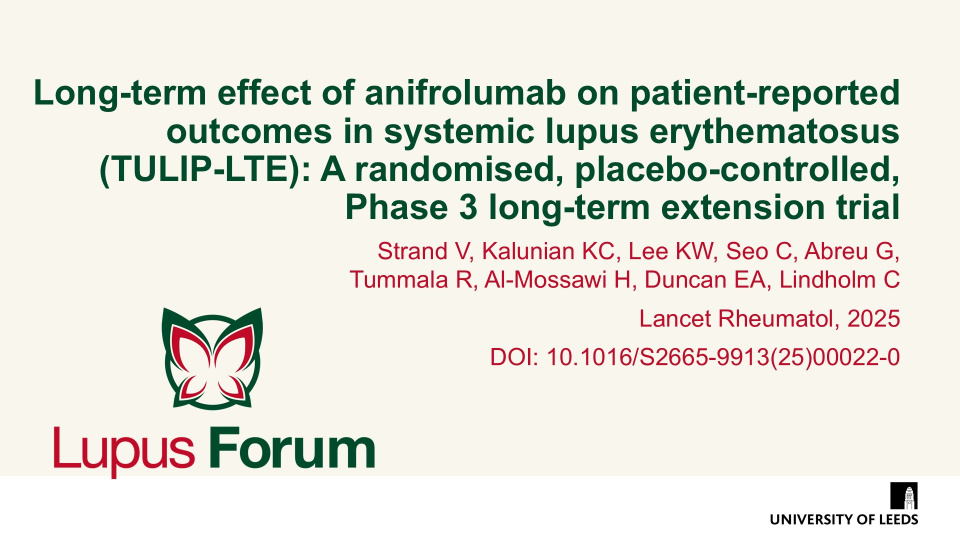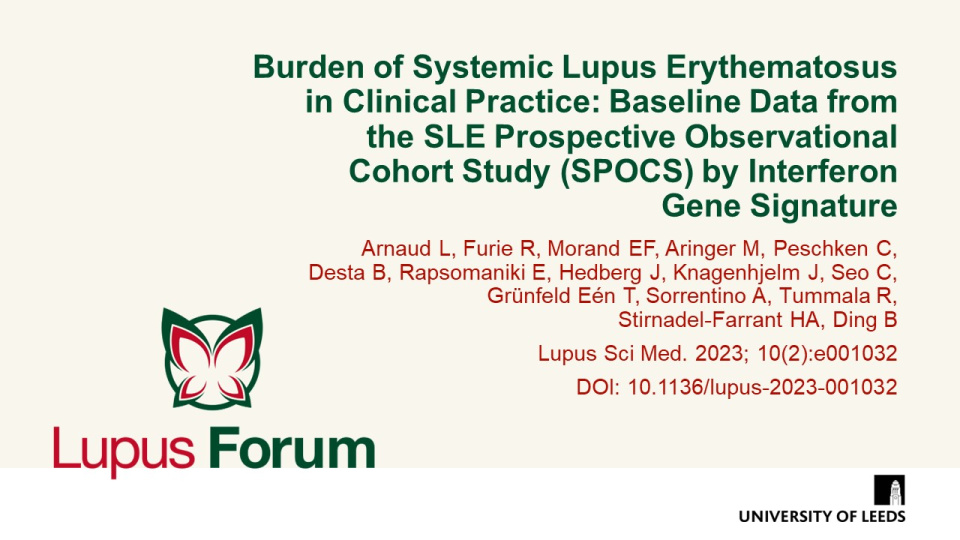Publications
Find coverage of the latest original articles on Lupus, focusing on those with data on therapeutic interventions and those that have clinical impact.
Long-term effect of anifrolumab on patient-reported outcomes in systemic lupus erythematosus (TULIP-LTE): a randomised, placebo-controlled, phase 3 long-term extension trial
Lancet Rheumatol, 2025 DOI 10.1016/S2665-9913(25)00022-0
Strand et al. performed an exploratory analysis to assess patient-reported outcome measures, to investigate how patients with moderate-to-severe SLE perceive the effects of long-term treatment with #anifrolumab on their health status and health-related quality of life. They report improvements in health status and health-related quality of life, including differences favouring anifrolumab compared with placebo. These numerical improvements in patient- reported outcomes occurred alongside improvements in disease activity, reduced glucocorticoid doses, and a tolerable safety profile. These data suggest that anifrolumab is an effective treatment option that might improve health-related quality of life.
Burden of Systemic Lupus Erythematosus in Clinical Practice: Baseline Data from the SLE Prospective Observational Cohort Study (SPOCS) by Interferon Gene Signature
Lupus Sci Med. 2023; 10(2):e001032 DOI: 10.1136/lupus-2023-001032
This study from Arnaud et al described baseline characteristics of SLE patients grouped by disease activity and IFNGS category in the international SPOCS study. IFNGS-high patients were younger at SLE diagnosis, and a baseline SLEDAI-2K score ≥10 was associated with shorter disease duration, more frequent and more severe flares. IFNGS-low patients were more likely to exhibit musculoskeletal and CNS comorbidities than IFNGS-high patients. Continuation of the SPOCS study will allow investigation into how different baseline characteristics affect long-term outcomes in SLE patients.



